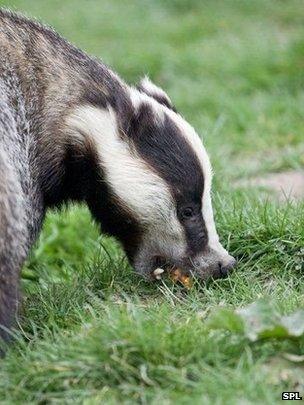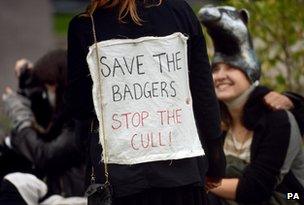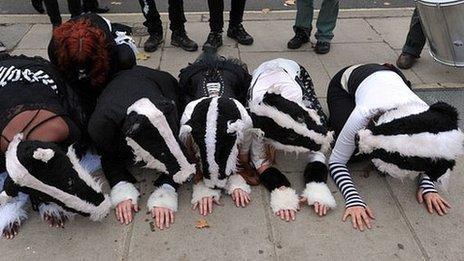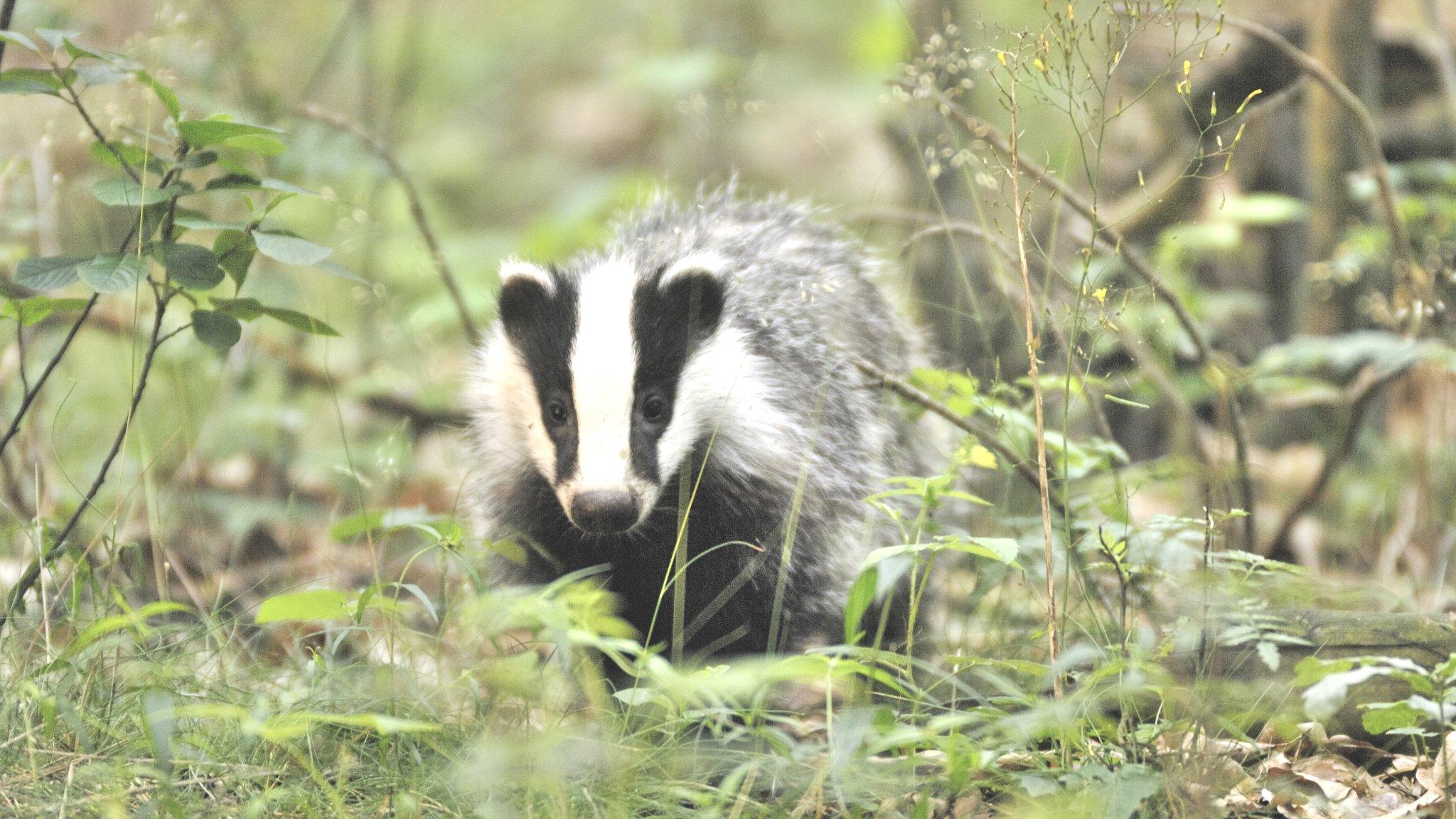Uneasy lull in badger cull battle
- Published
- comments

Whether or not badgers should be culled has been a controversial issues
Until next summer at least, badgers - and those engaged in seemingly endless wrangling over whether the animals should be culled - live to fight another day.
The Environment Secretary Owen Paterson is adamant that his eleventh hour postponement of the cull is just that and it will still go ahead - albeit a year later than originally planned.
However, senior figures on the pro-cull side of the argument have already concluded that last week's decision has lengthened the odds on a cull ever happening at all.
According to Mr Paterson, postponing the cull had become inevitable due a combination of unforeseen factors.
The weather had been atrociously bad over the summer, it was too late in the year to embark on culling, and badger numbers were double those previously anticipated.
Nobody would stake very much on being able to predict the weather with confidence. But, given the evidence of recent years, the likelihood was always that this summer would be on the wet side.
As for it being the wrong time of year, the decision to delay the pilot culls until the autumn (to get the Olympics and associated policing commitments out of the way) was made long ago.
The issue of badger numbers is crucial. Farmers in the cull zones are required to kill 70% of the animals. Suddenly discovering there are twice as many badgers as you'd previously planned for clearly causes a big problem.
This third factor was clearly the deal breaker. The question is whether the government could and should have cracked on and counted its badgers a bit sooner.
Ben Bradshaw, former Labour Defra minister, is in no doubt.
"You would think the very basic thing of getting the number of badgers in an area right is something they would be able to do," he said.
"I'm afraid this is just another example of this shambolic government".
'Not enough time'
A Labour MP who opposes culling is hardly an unbiased commentator.
Unfortunately for the government, though, one of the key figures actually organising the cull in Gloucestershire seems to agree with him.
"If we'd known four or five weeks ago - or even longer - that we had that number of badgers to deal with, we would have had time to look at how those figures were arrived at, challenge them if necessary, and indeed put in place the resources necessary to deal with it", said Jan Rowe.
"But we just did not have time in the last 10 days to make a decision whether to go or not."
The government had spent two long years determined to get every detail of the cull right.
In particular, it was understandably anxious to do everything in its power to fight off the inevitable challenge in the courts.

The cull has become a political hot potato, sparking vociferous arguments on both sides
Ironically, it breezed through all the legal intricacies only to fall at the final hurdle because it didn't know how many badgers there were.
Forced to halt the plans for time being, the environment secretary at least appeared to have one trump card up his sleeve. Mr Paterson was able to stand up in the Commons and reveal that the National Farmers' Union had actually asked him to postpone the cull.
Almost immediately rumours circulated that ministers had expended considerable effort trying to get the NFU on side ahead of the announcement.
It soon emerged, though, that these efforts were aimed at persuading the farmers to go aheadwith the cull this autumn. According to one well-placed source, the prime minister himself was personally furious that the farmers had forced a delay.
Judging by Jan Rowe's comments, the farmers felt the government's bad planning had placed them in an impossible position.
Having lobbied so long for a cull, the last thing they would want to do is embark on a pilot which they knew was doomed to fail from the outset.
Whether any of this has damaged the farmers' future bargaining power with the government remains to be seen.
All of the above pre-empted a backbench debate on badger culling which had previously been tabled for last Thursday.
Although the sense of urgency had obviously disappeared, nearly a third of MPs still turned out to debate the pros and cons.
Sarah Wollaston, the Conservative MP for Totnes, warned that the "celebrity status" of the badger was distorting the debate.
"I would say that we are getting a focus on a single species and I think that's unhelpful", she said.
Foxes, deer and rabbits
She went on to pose the familiar question: "Is a badger more important than a cow?" (Cattle are, of course, culled in large numbers as part of the present TB controls).
A more interesting question though, might be to ask whether a badger is more important than a fox, say - or a deer or a rabbit.
If any of these other abundant wild mammals were the principal wildlife reservoir for TB, farmers would just quietly (and legally) get on with shooting them.
We can be sure of this because all of these animals are routinely shot at the moment - either as pests, to eat or simply to manage population sizes.
However, there are no campaigns, no petitions, no protesters dressing up as deer or foxes, no parliamentary debates and certainly no £50m 10-year scientific investigations standing between any of these animals and the marksman's bullet.
Some animals are definitely more equal than other as far as the law is concerned.
Badgers are not just a protected species, they have an entire Act of Parliament devoted exclusively to them.
The Protection of Badgers Act 1992 was not introduced because badger numbers were under threat but simply as a response to the (already) illegal sport of badger baiting.
It is illegal to bait (set dogs on) or cruelly abuse any of the other animals I've mentioned - but that hasn't automatically led a to ban on shooting them as well.
If badgers do enjoy celebrity status Dr Wollaston may largely have her Conservative predecessors - who passed the Proection of Badgers Act 1992 - to thank for it.
- Published23 October 2012

- Published23 October 2012
